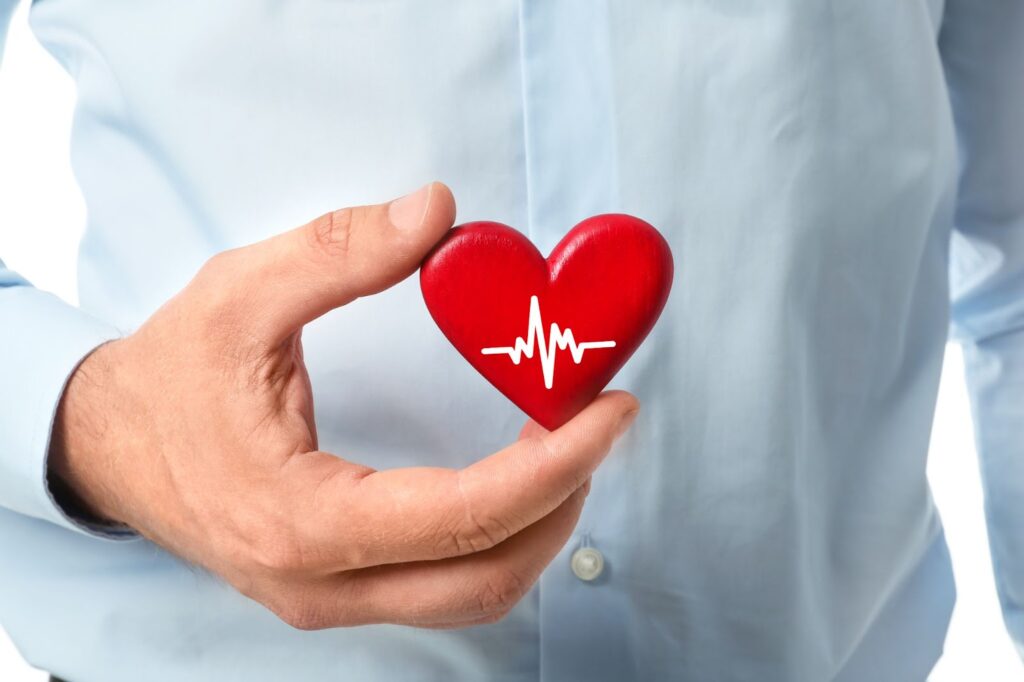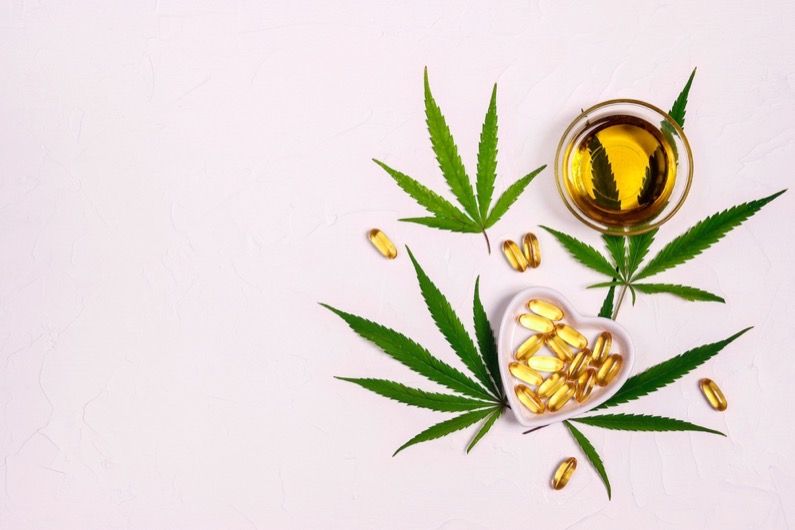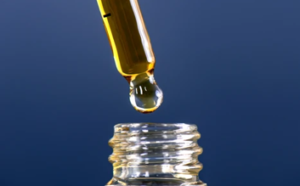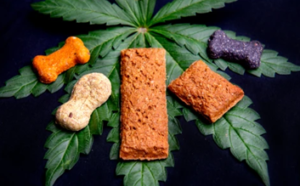CBD, short for cannabidiol, has gained significant popularity recently for its potential health benefits. As more people explore its uses and effects, questions arise regarding its impact on your health, specifically your heart rate.
With conflicting information and opinions circulating, it’s important to know the facts and separate myths from reality.
This article aims to provide a comprehensive understanding of the relationship between CBD and heart rate so you are informed about the next steps.
What Is CBD and How Does It Work?
CBD is a natural compound found in the Cannabis sativa plant. It is one of over a hundred cannabinoids present in the plant, but unlike its well-known counterpart THC, CBD does not produce a psychoactive effect.
CBD interacts with the body’s endocannabinoid system (ECS), a complex network of receptors and neurotransmitters that helps regulate various bodily functions. The ECS plays a vital role in maintaining homeostasis, or balance, within the body. CBD interacts with ECS receptors, primarily CB1 and CB2 receptors, influencing their activity and promoting overall wellness.
While the exact mechanisms of how CBD works are still being studied, research suggests that it may have anti-inflammatory, analgesic, anxiolytic, and neuroprotective properties.
The use of CBD can be consumed in various forms, including oils, tinctures, capsules, topicals, and edibles, making it versatile and accessible for individuals seeking potential health benefits.
How Does CBD Interact with the Body?
Understanding how CBD interacts with the body is key to comprehending its potential effects and benefits.
- Activation of Cannabinoid Receptors: CBD interacts with CB1 and CB2 receptors throughout the ECS to modulate their activity and influence physiological processes. CBD binds to these receptors, altering their response and signaling pathways, impacting pain perception, inflammation, mood, and more.
- Enhancement of Endocannabinoid Levels: CBD may increase the levels of endocannabinoids like anandamide by inhibiting their reuptake or breakdown enzymes, thereby prolonging their effects. It helps maintain optimal levels of endocannabinoids in the body, which contribute to regulating pain, mood, sleep, and immune function.
- Interaction with Non-Cannabinoid Receptors: CBD engages with various receptors outside the ECS, such as serotonin receptors (5-HT1A), vanilloid receptors (TRPV1), and opioid receptors, to influence diverse physiological processes. CBD’s interaction with these receptors can impact anxiety, pain perception, body temperature, inflammation, and more, extending its potential therapeutic applications beyond the ECS.
Can CBD Increase Heart Rate?
Does CBD raise heart rate? The question of whether CBD can increase heart rate has sparked interest and debates among researchers and individuals curious about its effects. While CBD is generally well-tolerated and considered safe, its impact on heart rate remains a topic of investigation.
Currently, scientific studies and available evidence do not suggest a direct link between CBD consumption and an increase in heart rate. However, it is essential to note that individual responses to CBD can vary, and factors like dosage, method of consumption, and overall health may play a role.
If you have specific concerns about CBD’s effects on your heart rate or cardiovascular system, it is advisable to consult with a healthcare professional who can provide personalized guidance based on your unique circumstances.
Does CBD Have any Cardiovascular Effects?
You may wonder is CBD good for your heart. CBD has been the subject of numerous studies exploring its potential effects on various aspects of health, including cardiovascular function.
While more research is needed to understand the extent of CBD’s cardiovascular effects fully, initial findings suggest several potential benefits.
- Potential Blood Pressure Regulation: CBD has shown promising results in reducing blood pressure, potentially contributing to the maintenance of healthy cardiovascular function.
- Anti-Inflammatory Properties: CBD may help mitigate the risk of certain cardiovascular conditions by reducing inflammation in blood vessels and tissues.
- Stress and Anxiety Reduction: High stress and anxiety levels can contribute to cardiovascular issues, and CBD’s potential to promote relaxation may indirectly support heart health.
Can CBD Help Reduce Heart Rate?
The potential impact of CBD on heart rate has been a topic of interest among individuals exploring the effects of cannabidiol on cardiovascular health. While CBD is known to interact with the body’s ECS and influence various physiological processes, the direct effect on heart rate is still a subject of ongoing research.
There is limited scientific evidence to suggest that CBD can significantly reduce heart rate. However, it’s worth noting that CBD’s potential to alleviate stress and anxiety may indirectly contribute to a lower heart rate. As stress and anxiety can elevate heart rate, CBD’s anxiolytic properties may help promote relaxation, potentially leading to a decrease in heart rate.
Moreover, some studies have indicated that CBD may positively impact blood pressure regulation. By potentially lowering blood pressure, CBD may indirectly influence heart rate as well. However, further research is needed to establish a clear cause-and-effect relationship between CBD, blood pressure, and heart rate.
As with any health-related consideration, it’s crucial to consult a healthcare professional before making any changes to your wellness routine, especially if you have existing cardiovascular conditions. They can provide personalized advice based on your medical history and guide you on the potential benefits and risks associated with CBD use in relation to heart rate.
Are There Any Side Effects of CBD on Heart Rate?
When considering the potential side effects of CBD on heart rate, it’s important to note that CBD is generally well-tolerated, and severe adverse effects are rare.
However, there are a few considerations:
- Minimal Changes in Heart Rate: CBD is not known to cause significant changes in heart rate, but in some cases, it may lead to a minor increase or decrease due to its interaction with the body’s endocannabinoid system.
- Interactions with Medications: CBD can interact with certain medications, such as blood thinners, and may influence their effectiveness or side effects, which could indirectly affect heart rate.
- Dry Mouth: One of the common side effects of CBD is dry mouth (also known as cottonmouth), which occurs due to the interaction of CBD with the salivary glands and can cause temporary discomfort but does not directly impact heart rate.
- Low Blood Pressure: While not specifically related to heart rate, CBD has the potential to lower blood pressure, which may be of concern for individuals with pre-existing low blood pressure or those taking medication to manage blood pressure levels.
What Factors Might Influence Heart Rate When Using CBD?
When using CBD, several factors can influence heart rate responses in individuals.
- Dosage and Concentration: The dosage and concentration of CBD consumed can potentially impact heart rate responses. Higher doses may have a more pronounced effect on physiological processes, including heart rate, than lower doses.
- Individual Sensitivity: Each person’s physiological response to CBD can vary. Some individuals may be more sensitive to the effects of CBD, including its potential influence on heart rate. Factors such as body weight, metabolism, and overall health can contribute to individual variations in response.
- Interactions with Other Substances: CBD can interact with other substances, including medications or supplements, which may influence heart rate. It’s essential to consider potential drug interactions and consult with a healthcare professional if you are taking other substances concurrently.
Are There Any Reported Cases of CBD Increasing Heart Rate?
Can CBD damage your heart or at least affect it negatively? The majority of scientific research and anecdotal evidence suggests that CBD does not have a significant impact on heart rate in most individuals. However, it’s important to consider that individual responses to CBD can vary, and there may be rare cases where certain individuals experience a minor increase in heart rate due to CBD use.
As with any supplement or substance, it is advisable to consult with a healthcare professional for personalized advice and monitoring, especially if you have underlying cardiovascular conditions or concerns.
How Can I Ensure Safe CBD Use with Regard to Heart Rate?
Ensuring the safe use of CBD for heart health is crucial for individuals considering incorporating CBD into their wellness routine. While CBD is generally well-tolerated and considered safe, it’s important to follow certain guidelines to minimize potential risks and promote responsible usage.
- Consult with a Healthcare Professional: Before starting CBD, it’s advisable to consult with a healthcare professional, especially if you have pre-existing cardiovascular conditions or concerns about your heart rate. They can provide personalized guidance based on your medical history and help monitor any potential effects on your heart rate.
- Start with Low Dosage: Begin with a low CBD dosage and gradually increase as needed. This approach allows you to gauge your individual response and minimize the likelihood of significant heart rate changes.
- Quality and Legitimacy of CBD Products: Choose high-quality CBD products from reputable sources to ensure you use pure and properly labeled products. Look for third-party lab testing results to verify the product’s composition and ensure it contains no harmful contaminants.
- Monitor and Observe Personal Response: Pay attention to your body’s response when using CBD. Monitor your heart rate and any other physiological changes. If you notice any significant changes in heart rate or experience discomfort, discontinue use and consult with a healthcare professional.
Try Quality CBD Products
While limited evidence suggests that CBD directly affects heart rate, responsible and informed CBD use is essential for individuals concerned about their cardiovascular health. Consulting with a healthcare professional, starting with low dosages, choosing high-quality CBD products, and monitoring personal response are key steps in ensuring safe CBD use.
If you’re looking for premium quality CBD products that prioritize your well-being and offer peace of mind, consider exploring the range of products available at Atmos Smoke in its locations at Katy, Richmond, and Crosby, Texas. Our products undergo rigorous testing and adhere to strict quality standards to provide you with a safe and enjoyable CBD experience.
Whether you’re looking for tinctures, edibles, topicals, or more, our products are crafted with quality and your well-being in mind. Shop now and experience the potential benefits of CBD without compromising your heart rate. Your health deserves the best – choose Atmos Smoke for your CBD needs.











